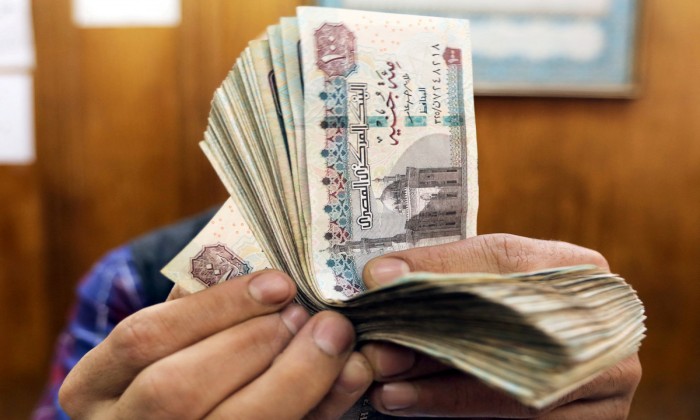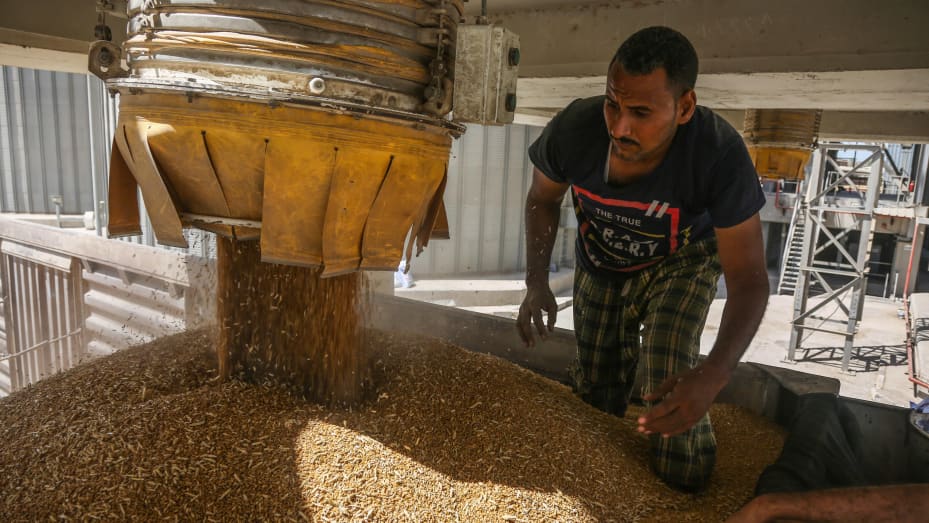– Advertising –
homeland – The Egyptian pound recently hit the lowest level among world currencies in 2023 and is expected to fall further against the US dollar.
The Egyptian pound continues to depreciate against the dollar
The Egyptian pound is currently the sixth worst-performing currency in the world since January 1, and has continued its decline, seeing it lose more than half of its value in 2022.
A network report is indicatedCNBC CNBCIn February, Egypt’s headline inflation rate hit its highest level in more than five years, rising 31.9% year-on-year, driven by rising food prices fueled by the war in Ukraine.
The Egyptian pound suffered its biggest single-day drop on Jan. 4 after the cash-strapped government agreed to a $3 billion deal with the International Monetary Fund through mid-December 2022, officials said.
Since the beginning of 2022, the Egyptian pound has lost more than 60% of its value.
The pound is heading downwards
The Egyptian pound has fallen nearly 20% against the dollar since the start of the year, with some analysts speculating the currency could fall further.
According to a report by “Li Ying Shan”, the Egyptian pound is currently the sixth worst-performing currency since January 1, continuing its decline that saw it lose more than half of its value in 2022.
Today, Wednesday, the Egyptian pound traded at around 30.85 pounds per dollar in Egyptian banks.

The Lebanese pound is in first place
At the end of March, the Lebanese pound was the most volatile currency since the start of the year, falling as much as 70%, followed by the Venezuelan bolivar and the Zimbabwean dollar.
Another Middle Eastern currency, the Iranian Rial, ranks fifth among the worst currencies.
“These sharp declines are not new because all three Middle Eastern currencies have serious local problems,” Steve Hanke, an economics professor at Johns Hopkins University who tracks crisis currencies, told CNBC.
Egypt’s troubled economy
However, the economic woes affecting the Middle East’s most populous nation mean the pound is still on the decline, according to experts.
Egypt’s headline inflation rate rose 31.9% year-on-year to its highest level in more than five years in February, driven by rising food prices exacerbated by the war in Ukraine.
Egypt is the largest importer of wheat, and Ukraine and Russia are among its largest suppliers.

The trend in inflation has exceeded expectations
Goldman Sachs economist Farouk Sousse said in a research report he published on March 9, “The path of increasing inflation increases the pressure on the Egyptian pound, which has remained relatively stable since the devaluation in early January despite clear signs of a series of deficits. ” Liquidity in foreign currencies.
$3 billion in debt
He expects inflation in Egypt to be 36% in the third quarter, if there are no further cuts.
Last December, the International Monetary Fund approved a $3 billion loan to rescue the ailing Egyptian economy. However, it rests on the country’s commitment to economic reform over the next four years, and one of the steps towards that is the adoption of a flexible exchange rate.
Egypt’s fiscal deficit
In January, the International Monetary Fund predicted Egypt’s fiscal deficit would be $17 billion over the next four years. A fiscal gap refers to the amount of foreign exchange a country needs to service its debt.
Most recently, on March 30, the Central Bank of Egypt raised key interest rates by 200 basis points in an effort to curb inflation.
mentioned in Report The path of base interest rates depends on expected inflation rates and not on prevailing inflation rates. He also emphasized the need to control monetary policy as a precondition for achieving the inflation rates targeted by the Central Bank of Egypt.
Angus Blair, chief executive of the Signet Institute, said Egypt “needs to move quickly to make fundamental changes to its economy and the way it operates”.
Earlier this week, the Egyptian president, Abdel Fattah el-Sisi, confirmed that the problems of the dollar’s shortage and the pound’s exchange rate would become “history” without explaining how to end the crisis.
First Abu Dhabi Bank’s Simon Ballard wrote in a report dated March 29: “Inflation in Egypt looks set to rise further in the coming months.”
He added that he expected the country’s central bank to “prioritize economic growth at the expense of the pound (stabilising)” this year.

“Award-winning beer geek. Extreme coffeeaholic. Introvert. Avid travel specialist. Hipster-friendly communicator.”
